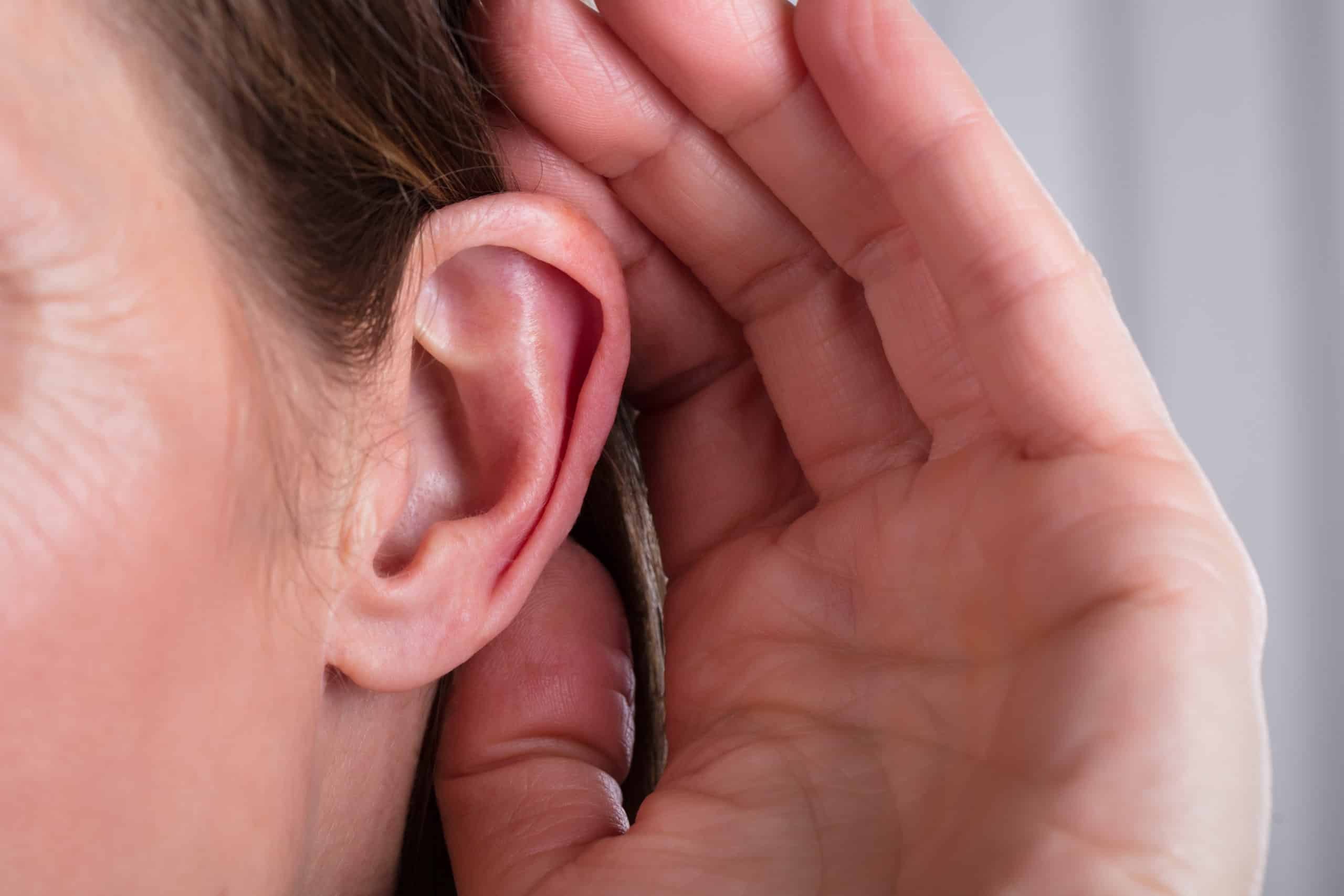Risk-free 30 Day Trial: Limited availability every month!

Just as your hearing affects nearly every aspect of your life, so too does mental health. And although they can seem like independent processes – one with physical sensation and the other of internal processing – hearing health and mental health are inter-related. The way hearing loss tends to isolate people from social scenarios and loved ones can make mental health issues like depression worse or more likely, which is why it’s important to be both aware and active of your hearing loss, especially if you may be at risk for mental health disorders in the first place.
What Causes Depression?
Depression is more than just feeling sad. When a person suffers from depression, even the simplest tasks can feel impossible and physical symptoms like fatigue, aches, and loss of appetite take a toll on the body. Enjoyable activities, including ones that get a person physically active, become chores, leading people to self-isolate, which in turn can make depression worse.
There are myriad factors that play into a person’s experience of depression, including genetics, life circumstances, environmental factors, and disorders like hearing loss. This means that depression is often un-preventable but it’s not untreatable. Getting psychological help through therapy, addressing physical handicaps like hearing loss, and connecting with the world and other people are all potential ways to mitigate depression and its side effects and risk factors.
Links Between Hearing Loss and Depression
Recent studies have shown an increased risk of developing multiple complications both physically and mentally when you begin to suffer from hearing loss. As hearing loss is statistically more common in people above 65, studies have focused on this age group. Research shows that those in this bracket with hearing loss who do not use a hearing aid report higher levels of sadness and more frequent experiences of sadness, as well as a depressive belief that others are mad at them for no reason.
When you don’t hear well, it’s hard to engage actively in conversations and enjoy the world around you. In addition, many people associate hearing loss with admitting their older age, or feel there are negative stigmas around using hearing aids, which is why they may avoid seeking them out even if they know it could help them live more fully.
All these factors can lead to mood swings, isolation, irritability, and paranoia, all of which contribute to mental health illnesses including depression.
How to Help Your Loved One Get a Hearing Test
Because your loved ones may not be open or accepting of help in the form of hearing aids, it’s important to approach the topic tenderly. Many people may not be aware due to the gradual nature of age-related hearing loss, so do your best to introduce the idea in a non-threatening way. Preface the discussion with assurance that you care about their health and lifestyle and want to empower them with a solution that’s most comfortable for them.
Hearing Loss Solutions in Georgia
If you or a loved one are finding it increasingly difficult to hear and enjoy your normal activities, don’t wait to get a hearing loss solution that fits your lifestyle and budget. Find out what modern options are available for professional hearing aids by calling Georgia Hearing Aid Factory Outlet today or by contacting us online to schedule an appointment. We’ll show you all our solutions with advanced technology and tuning abilities to help you keep living your best life.


 (706) 525-5463
(706) 525-5463